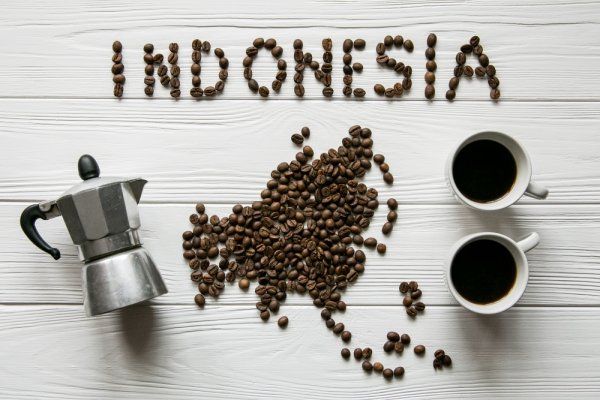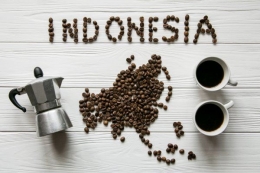What makes Indonesia smell good in the world's eyes? Is the answer explicitly and implicitly. Basically, at present, Indonesian coffee has a reasonably high predicposition in the world market. Some Indonesian coffee is irreplaceable to any state-run coffee, its example is sumatran coffee (mandailing, lintong, etc.). The majority of the world roaster prefers sumatra beans asa component of a stronger "robust" body in their signature blend, which is no different because Sumatra has a "hardcore" body that is not found in another country's coffee beans. Now all we need to do is boost our confidence in the world's coffee market, which of course must be offset by hard work and optimism. As long as we can maintain the quality of our plant-coffee beans, we won't have to worry about losing the market. Today's world coffee market is still very promising. At least to date, it remains the second largest commodity consumed most in the world after oil. Other statistical data also shows that over 50% of the adult population in the United States are coffee drinkers and there is a lot of other data that if we are observant about this, we are likely to be the world's top number four producer of it. We may need to learn from Brazil how to position ourselves in the multicopy world series. Perhaps we remember when Brazil in 1906, the 1930's, and the early 1970s confidently and optimistically destroyed tons of coffee into the sea in order to maintain their price stability. This move looks silly but has a monumental effect on Brazilian coinage. The short term mass coffee extermination has an effect on the stability of the price of coffee, while in the long run, Brazil is actually having a branding on their coffee to be known the world. So what about the domestic coffee market story? Is it "as festive" as the world coffee market? While many of Indonesia's best coffee beans fall into the international market, it does not mean that there are no festivities at the domestic coffee market. The domestic coffee market is still dominated by the equally rousing lower market share of the international coffee market.
Brands of sachet coffee are being developed and various flavors of flavor are offered, as if depicting the high and low social curiosities of the "up-and-up" (read: cappuccino, latte, etc.), although these are only artificial. Just as curs have always been inherent in two sides, the domestic market for this country's coffee remains. In some communities, coffee has become a daily necessity that has become almost primary and in some other communities a lifestyle that shows a measure of prestige and self-existence. It is natural and natural, and yet similar phenomena occur in developed countries. The coffee-shop that proliferates today, although not as much as the "sachet" slowly but surely begins to show its characteristic domestic coffee market appearance, the term "yeast" is gradually becoming familiar, premium coffee roaster-roasters on a small production scale have sprung up, with the most enjoyable being that home-baristas have emerged. The birth of home-baristas seemed to challenge the assumption that "delicious coffee was only available in cafes."
The Home-barista phenomena has also proved that anyone can make delicious coffee without having to "bankrupt" you. Simple and relatively inexpensive manual tools (when compared to "coffee" at home each day), home-barista can now produce and enjoy ala cafe's coffee at home every day. Home-barista reflects seriousness in the achievement of a perfectly good taste by a coffee drinker. Speaking of home-barista reminds me of Italy, in almost every home in Italy has POTS as a must for their coffee rituals. Having POTS in Italy is like having POTS in this country, which means that the use of pot is not uncommon and is a deep culture in their lives. It's not impossible that one daya delicious coffee culture with manuals could become a mandatory ritual in every home in Indonesia. And at the end of the day, whatever your orientation is domestic or international, from which you are from "sachet" or "fabric", coffee can always bring us together to sit together, so "enjoy your life, enjoy your coffee".











